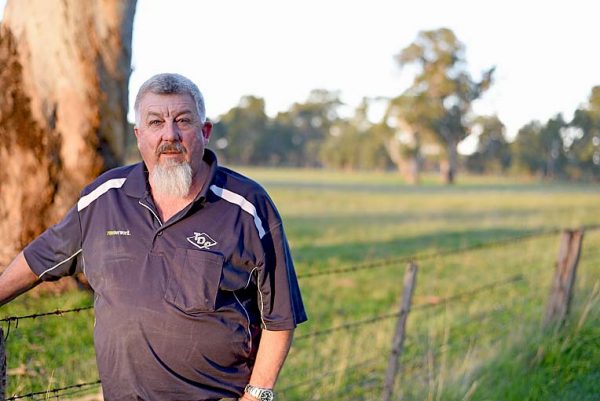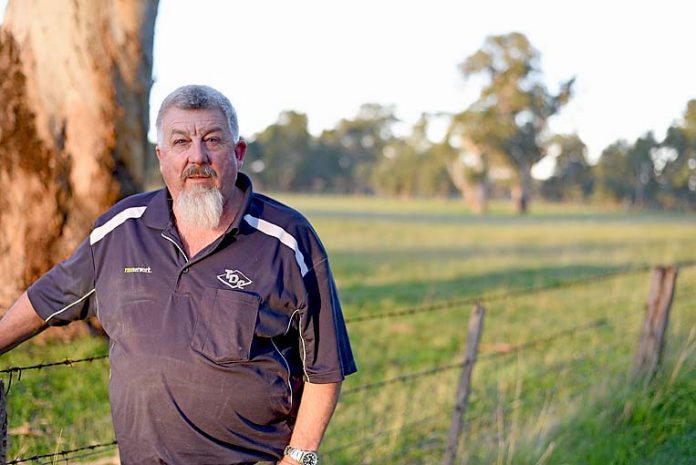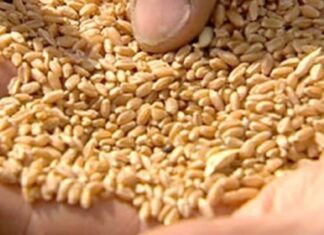
PENOLA district farmers have raised concerns about the financial implications of the South Australia-Victoria border restrictions on the primary produce sector as the typically strong spring period draws near.
The region’s livestock selling facilities continue to operate albeit at reduced capacities with varying COVID-19 measures in place, some limiting the number or type of person who a can attend sales.
Penola sheep and cattle farmer Steven Hill believes if only a select few Victorian farmers were able to cross into South Australia for livestock sales, it could have a significant industry impact including lower prices due to lack of competition.
“Those from Victoria who wish to purchase stock over the border may have to appoint someone to buy on their behalf but that is taking the competition away by doing that which is not good for an auction,” he said.
“We thrive on having competition so it will have an effect at some stage, it is just a matter of how much and that depends on how long it lasts.”
Mr Hill said the current situation, which continues to evolve as Victoria registers new COVID-19 cases, could prove difficult to manage for some farmers who rely heavily on cross-border trade and travel, foreshadowing the potential for a price hit in the coming months.
He said prices may take a hit in the coming months as restrictions remain in place for the foreseeable future.
“There has been no effect on the market as of yet but it is more about what will happen in the next three to four months,” Mr Hill said.
“I do think the prices will fluctuate and I think the prices will go down just because the Victorian buyers are not there but the market has been going up and down for decades and that will never change.
“But supply is short and demand is strong so the market will not crash it is just a matter of what impact COVID-19 and the restrictions will have.”
Apsley sheep and cattle farmer Terry Ogilvie – a regular at the Naracoorte saleyards – said although he understood the need for border restrictions, he found the situation difficult to manage.
Mr Ogilvie recently attempted to cross into South Australia to transport lambs to the Naracoorte saleyards but was refused entry at the Edenhope Road border checkpoint due to a paperwork descrepancy.
The Victorian farmer then transported two loads of sheep – destined for auction at Naracoorte – to Horsham.
“I am expecting these restrictions to head into the Spring season because there are so many cases in Victoria which will mean more travel for farmers close to the South Australian border,” he said.
“And if the prices for stock do decrease well us farmers are just going to have to adjust, it does not matter where in Australia you are we will all just have to re-adjust.”
TDC Livestock and Property director Mark De Garis said although uncertainty surrounded the future trading environment, there was scope to increase online auctions to continue livestock sales.
Mr De Garis said many farmers from both states recognised and respected the need for the current restrictions, with electronic auctions becoming increasingly popular.
“Some of the benefits to an online auction is the stock stays in place which is the main one but its a good alternative,” Mr De Garis said.
“It will never take away from the saleyards but it gives a broader audience for the stock with the only necessity being accurate descriptions.”
Mr De Garis said there was potential difficulties for Victorian meat purchasers due to the border restrictions and limiting South Australian travel corridor.
He said many farmers were taking future sales on a day to day basis with more business being conducted using technology rather than face to face.
“The big thing at the moment is the livestock prices have been really good and it is just starting to ease now due to different things, including COVID-19,” Mr De Garis said.
“That will put pressure on the industry going forward as to where the prices will end up coming into the spring.”








